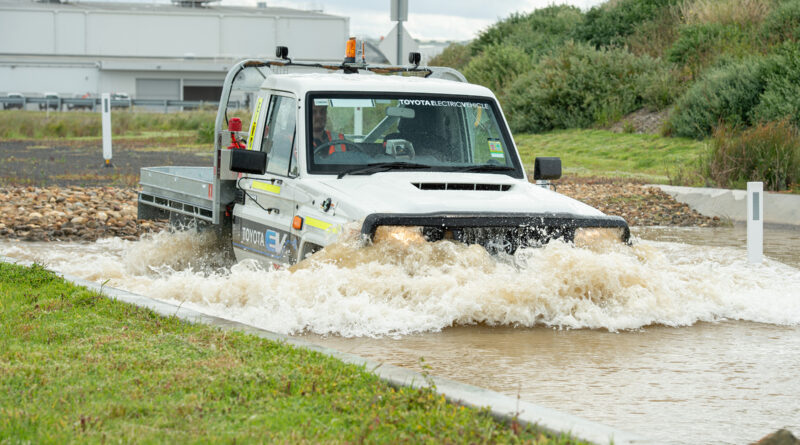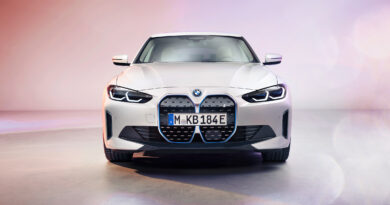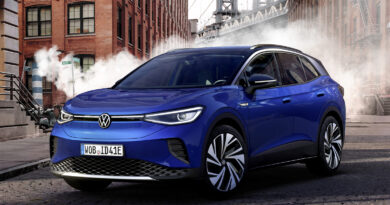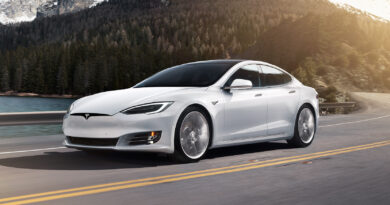Toyota LandCruiser 70-Series EV pilot program to expand
An electric Toyota LandCruiser 70-Series is one step closer to dealerships.
The “small scale trial” involving a single vehicle with mining giant BHP is set to expand, representing the next phase in bringing a LandCruiser 70-Series EV to market – albeit something that could take a couple of years or more to arrive in dealerships.
UPDATE: Toyota LandCruiser 70-Series EV heading for production
Toyota Australia product planning boss Rod Ferguson says the unprecedented development program to create an electric Toyota off-roader – possibly the first in the world – was progressing following the placement of the 70-Series development vehicle at the BHP Nickel West mine in Western Australia.
“We’ve learnt a few things, absolutely we’ve learnt a few things,” Ferguson said of the early feedback having announced the development program in January. “We’re using that for live feedback in situ.”
Ferguson told EVcentral that the company would soon deploy more development vehicles as the program expanded.
“We’ll have subsequent vehicles later on, so we’ll continue to build up that prototype program.”
Like the first prototype vehicle Toyota will lean on an unnamed third party conversion company that already converts 70-Series LandCruiser to electric, as well as utilising its own Product Planning and Development division in Melbourne.
The 70-Series is the utilitarian version of the LandCruiser built primarily for mining companies, fleets and farmers. Toyota also builds the more luxurious 200-Series LandCruiser that is set to be replaced in 2021 by an all-new model tipped to be called the 300-Series; the 300-Series will be offered with a hybrid system and could one day lead to the first hydrogen LandCruiser.
Even Toyota says hydrogen makes sense for the LandCruiser. Eventually…
Once the 70-Series EV makes it to production – something that seems inevitable, albeit not in the short term – it’ll have the full backing and engineering nous of Toyota Australia.
“We’re not just having a third-party put a kit in a car and then delivering it to BHP,” said Ferguson. “It’s got the Toyota badge on the front so we’re adding our development and evaluation expertise.”
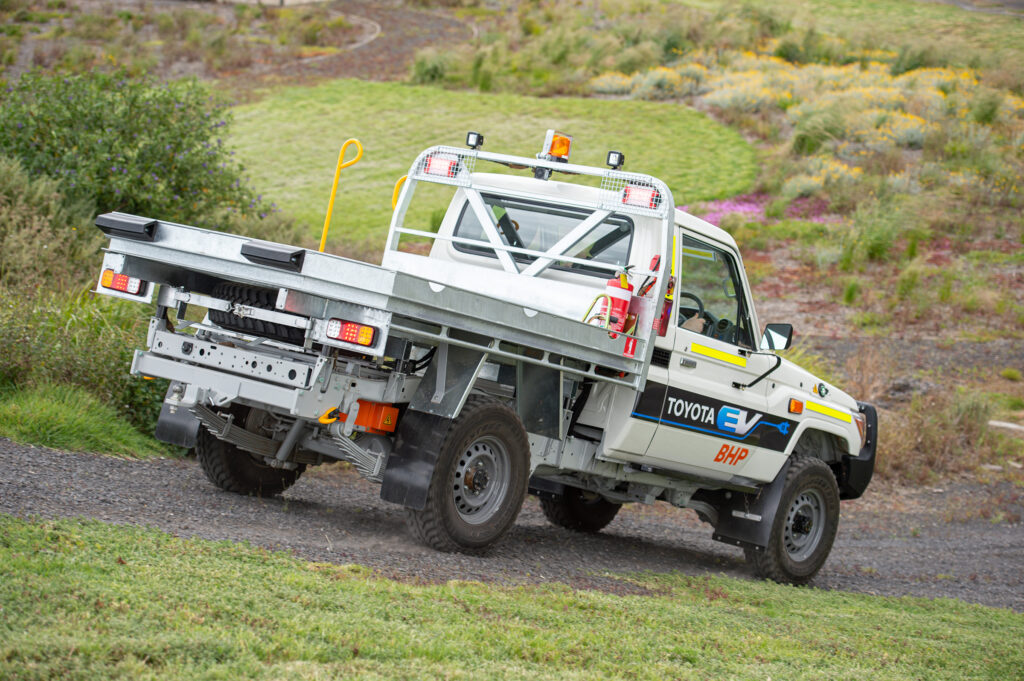
He added that mining companies expected manufacturer support to ensure the durability and reliability that comes from entrenched engineering programs and requirements.
“Certainly the feedback from those companies is they want to deal with … an OEM [original equipment manufacturer]-backed product.”
Ferguson said the in-field development was crucial in ensuring the car met customer expectations.
“It’s only through feedback in the actual environment and the actual conditions with the actual users … we’ll continue to find issues, correct them, improvement them to the point where we’re happy to scale.”
While there are plans to eventually offer an electric LandCruiser 70 to retail buyers, the early focus is on mining companies, something that could shape the makeup of the electrical drivetrain.
The driving range and charging times of the LandCruiser 70 EV were crucial.
“We’re working with them [BHP] … around what the appropriate range is,” he says.
“Obviously they want to minimise the downtime of the vehicle, they only want to be charging it during natural breaks or other things.”
But at the same time the car can’t be too heavy or expensive, all of which goes into the mix.
“Batteries are expensive, so you don’t want to over-spec the car… but you want to get the balance right.”
Ferguson said the unique usage in a mine created natural challenges.
When driving down into the mines, for example, the cars can generate electricity through regeneration (effectively reversing the flow of electrons to create electricity from the electric motor rather than use it).
But the heat would increase use of air-conditioning, which saps more electricity and puts additional loads on the batteries.
In terms of manufacturing, Toyota hasn’t decided how that will happen. One option is to manufacture electric LandCruiser 70-Series in Japan, as with any other variant.
But that creates complexity on the production line for what is likely to be very low volumes, at least initially.
The preferred option appears to be doing something locally, possibly using one of the existing companies already converting the 70-Series to electric.
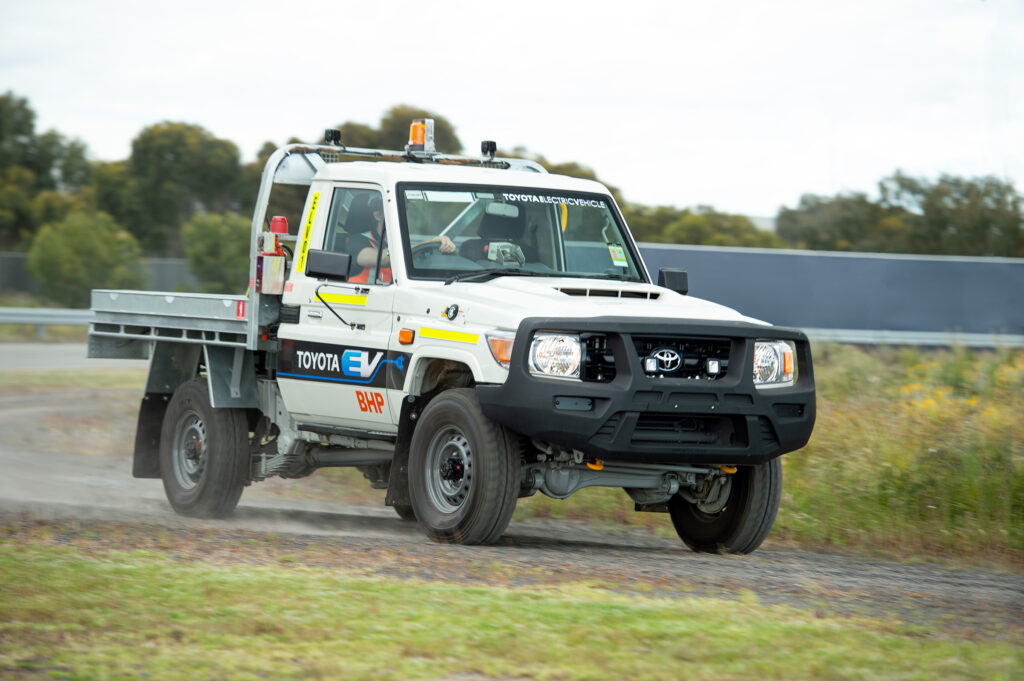
Ferguson said as the manufacturer of the original vehicle Toyota had advantages that could make it more cost competitive to manufacture.
“We can definitely look at those options of optimising the condition of the donor vehicle,” he said, alluding to the potential to leave some components out rather than remove them later.
For example, Toyota could request changes from the factory in Japan to prepare the car for an EV conversion – such as shipping cars without an engine, gearbox and fuel tank – something that could reduce manufacturing costs and theoretically reduce the price in the showroom.
While the 70-Series EV project doesn’t appear to have been signed off, it seems inevitable.
“It’s just a matter of time until the technologies get proven and we as Toyota can show that the durability is there.”
However, Toyota stressed it would not be rushed into bringing a car to market before the engineering work had been completed.
“The timing won’t be dictated by prematurely putting something out there.”

